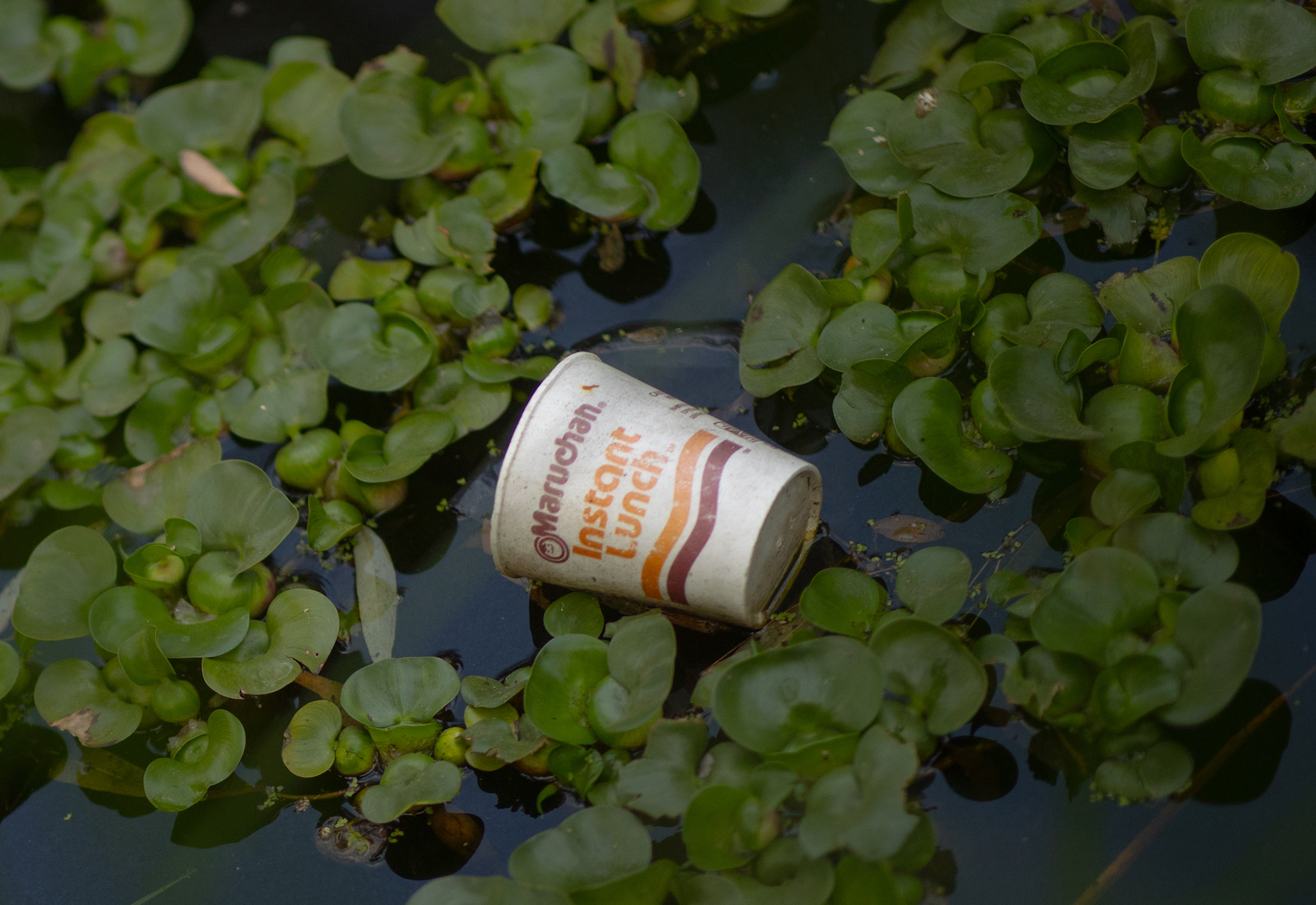In a major victory against plastic pollution, city council members in Los Angeles and San Diego voted on Tuesday to ban the distribution of expanded polystyrene, the foamy plastic that’s used in disposable coffee cups and takeout food containers.
“Expanded polystyrene has no place in our city’s future,” LA councilmember Mitch O’Farrell told reporters on Tuesday.
Starting next April, large companies in California’s two most populous cities will be prohibited from giving out or selling dishes, cups, and other products made from plastic foam. The bans, which are expected to be signed into law by the mayors of each city, make some exemptions for products like surfboards and coolers that are encased in a “more durable material,”, and LA will give businesses with fewer than 27 employees an extra year to comply with its ordinance. San Diego’s ban grants a one-year extension to businesses that make less than $500,000 annually.
LA and San Diego will now join hundreds of jurisdictions around the country that have moved to phase out plastic foam, including eight U.S. states and other major California cities like San Francisco, San Jose, and Oakland. And the material will soon be restricted across California, thanks to a state law passed earlier this year called the Plastic Pollution Producer Responsibility Act. The legislation stopped short of outright banning polystyrene statewide but will require plastic producers to demonstrate that at least 25 percent of it is actually recycled by 2025 — a “de facto ban,” according to some environmental advocates, since polystyrene isn’t recyclable at virtually any of the state’s material recovery facilities, and less than 1 percent of it is recycled nationwide.
The two cities’ bans were passed after years of lobbying from environmental organizations, which argued that the benefits of expanded polystyrene — mostly its light weight and low price tag — were far outweighed by risks to the environment and public health. Not only does it crumble into fragments of microplastic — tiny plastic shards that are being detected just about everywhere on Earth, including in people’s bloodstreams — expanded polystyrene is made of a building block called styrene, classified as “probably carcinogenic” by the World Health Organization. Research suggests expanded polystyrene containers can leach styrene into people’s food and drinks, and an Ipsos poll released in April found that 71 percent of California voters support policies to limit their use.
Still, restaurant and plastics industry groups fought the legislation in both cities. In San Diego, a polystyrene ban originally approved in 2019 was stalled for nearly four years as opponents sought a comprehensive assessment of the policy’s environmental impacts. The California Restaurant Association — which has about 22,000 members, compared to the 76,200 bars, coffee shops, restaurants, and similar establishments that were operating in the state as of 2018 — argued that replacing polystyrene with heavier products would lead to greater greenhouse gas emissions from transportation, a claim that proved to be technically true, albeit misleading. Christy Leavitt, plastics campaign director for the nonprofit Oceana, said it ignores greenhouse gas emissions from across the rest of polystrene’s life cycle. Like any plastic, polystyrene comes from fossil fuels and causes climate pollution when it’s produced, when it’s shipped, and — because virtually none of it is recycled — when it ultimately winds up in a landfill, in an incinerator, or as litter in the natural environment.
On the whole, the 224-page environmental assessment requested by industry groups showed that the environmental benefits of phasing out polystyrene were more than enough to justify a slight increase in transportation emissions.
Craig Cadwallader, policy coordinator for the nonprofit Surfrider South Bay and a member of Reusable LA, a coalition of groups that supported the polystyrene ban, said the plastics industry also put out “a lot of misinformation” on the alleged economic toll of moving away from polystyrene. Industry groups’ statements implied that the policy would devastate mom-and-pop shops and restaurants, which are more likely than larger businesses to still be using plastic foam. (Most national and regional chains have dropped polystyrene following pressure from environmental groups.)
LA council members “didn’t want to be seen as being detrimental to small businesses,” Cadwallader told Grist. But if bans were really as harmful as the industry says, he added, the 158 polystyrene-related ordinances already on the books in cities and counties across California would have “wiped out businesses in a big way” — something that has not happened. He said he’s been unable to find one example of a business that’s “gone under” from costs associated with phasing out plastic foam.
In addition to banning polystyrene, LA also passed additional ordinances on Tuesday expanding its ban on single-use plastic bags at grocery stores to include restaurants, hardware stores, and other retailers, and banning single-use plastics from city events and facilities. San Diego’s ordinance also included language preventing restaurants from giving out single-use cutlery and straws unless customers request them.
The ordinances fit into a broader push to limit single-use plastics statewide, supercharged by legislation that Governor Gavin Newsom signed into law this summer. Considered to be the country’s strongest plastic reduction policy, the Plastic Pollution Producer Responsibility Act will require California to cut single-use plastic packaging and foodware at least 25 percent below 2023 levels over the next 10 years.




